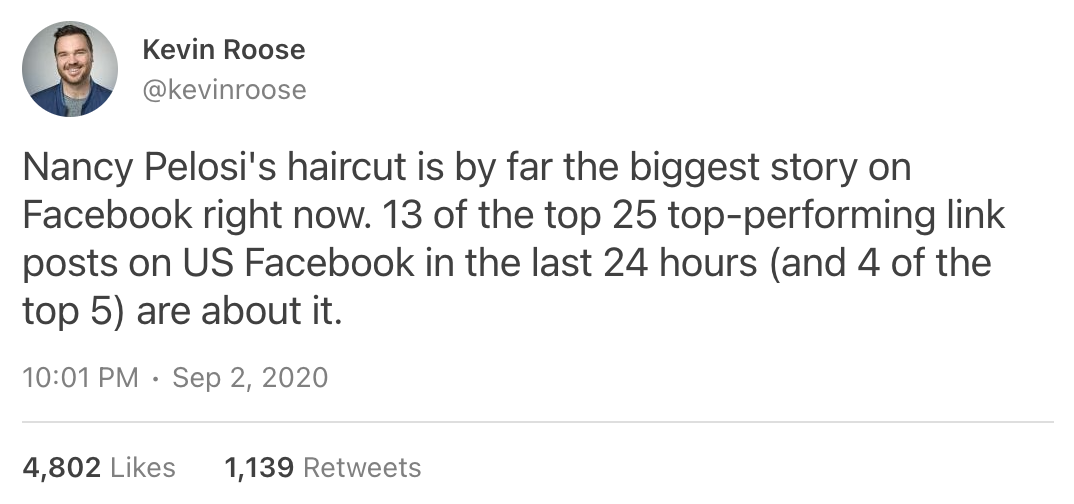
Area Investment Banker Over ItFeb 19
an epic rant from an anonymous investment banker in mamdani's new york
Sep 8, 2020

Pelosi’s bad hair day. Back in early March, San Francisco was the first, major American city to shut down essential services. Seven months later, it’s one of the last to open. Tabling for now the necessity of such measures and the question of whether or not some far greater calamity than economic depression has been averted, the impact on our city, already precariously positioned, has been disastrous. We have seen a massive uptick in crime, including burglary, which our District Attorney refuses to prosecute, the widespread closure of beloved small businesses, a slow-motion collapse of public transportation, and a declining population as young workers and families flee the city in record numbers. This will of course impact the tax base, which will impact our budget, and in this regard it seems we are also basically screwed. To say things are tense around town would be an understatement, and with the national media increasingly focused on our admittedly calamitous state of affairs, it should be no surprise to anyone that a story about goofy rich hypocrisy from our local celebrity politician and Speaker of the House Nancy Pelosi would make national news. Alas, the New York Times’ crackerjack tech team would have you believe this entire controversy, as with everything else that ills our broken world, is Mark Zuckerberg’s fault.

Kevin’s been sharing information from CrowdTangle, a Facebook tool that helps publishers measure “story popularity,” for a couple years now. From the start, he’s tried to paint Facebook as a right-wing cesspool, attempting both to undermine the notion among Republicans in Washington that the technology industry is biased against conservatives and further pushing the longstanding left-wing fever dream that Russian bots on Facebook, by pushing conspiracy theories and fake news, elected Donald Trump. But, in the first place, it’s not entirely clear which stories on Facebook are most popular, which, explicitly in the context of Kevin’s Facebook series, Casey Newton reported back in July. Casey’s reporting largely drew on commentary from John Hegeman, Head of newsfeed at Facebook, who responded to Kevin publicly, and dismantled his right-wing bias claim by explaining the difference between “engagement” and “reach.” CrowdTangle measures engagement, which is to say clicking, commenting, sharing. It doesn’t measure how many people actually see a story, or how “popular” it is. That information, when presented, paints a dramatically different picture of what kind of content people on Facebook are actually seeing: